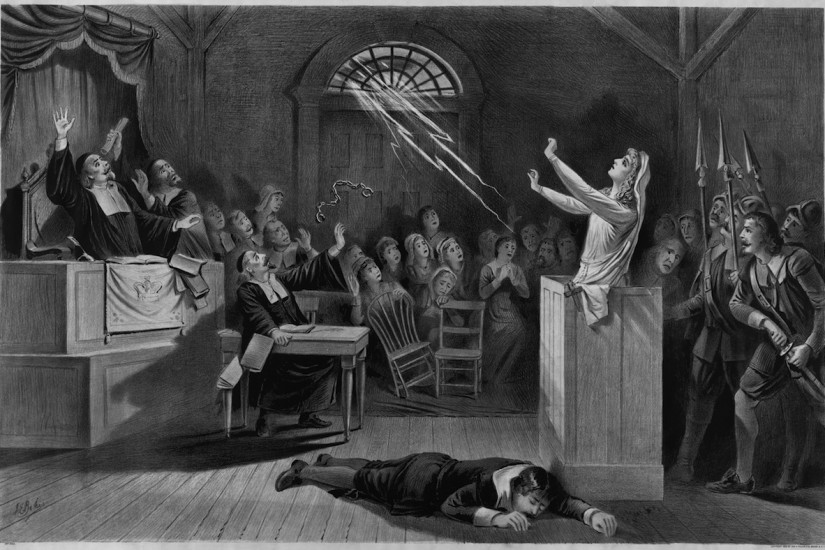It didn’t take long for our President to declare the appointment of a special counsel for the Russia inquiry “the single greatest witch hunt of a politician in American history.” Historical literacy has never been for everyone. Even the ancients complained of ignorance about the past and inaccuracies on the page. The greatest witch hunt in American history, of course, occurred in 1692, not 2017. It’s worth revisiting, as it happens to offer a few lessons about name-calling, special prosecutors, and abuses of power. Strictly speaking, the Salem witch trials were less a hunt than a free-for-all. Beginning with three more or less usual suspects, they ended in a colony-wide epidemic. Fingers pointed in every direction as friends and families accused one another. By some counts as many as seven hundred witches flew about Massachusetts. A special court prosecuted the cases according to the law of the land. Nineteen innocent men and women hanged. Over several days, a twentieth would be crushed under stones, for contempt of court.
Behind those witchcraft prosecutions—not Massachusetts’s first, but forever its most infamous—stood the colony’s best-educated men. The political élite had reason to embrace the trials. Together they had recently sent a royal governor packing, in a political coup; they had a fledgling administration to support. At its head sat a barely literate man, rude and reckless, a rascally treasure hunter installed by a beleaguered group of purists eager to safeguard their privileges and padlock their ranks. A weak, absent administrator, he had little interest in governing. He far preferred glorious deeds involving sunken treasures and Indian scalps. He was without political experience; he threw tantrums; he bullied and insulted elected officials. His supporters worried about legitimacy and strained to broadcast proficiency. Having earlier incited a mob to overturn the government, they needed to prove their law-and-order credentials. Political concerns outweighed all else. Close-knit and inbred, those men constituted as much a “real family” as a fraternity. Their business interests coincided. They moved in lock step.
